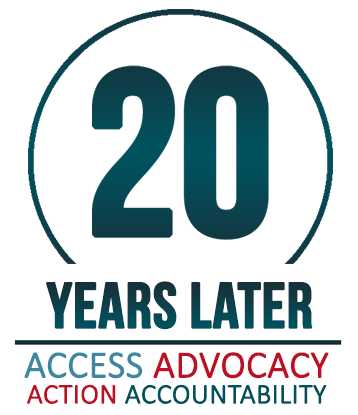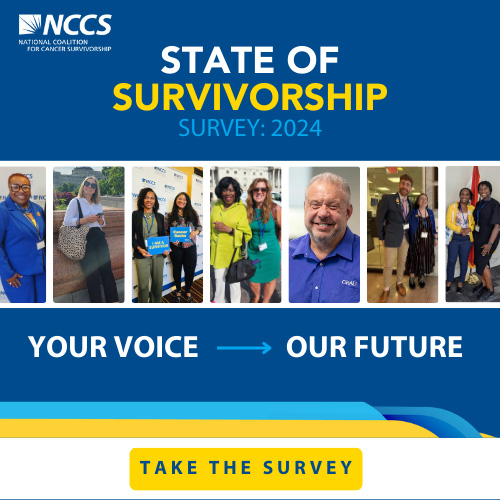Second Anniversary of State Exchanges: Affordable Options for Cancer Patients, But the Devil Remains in the Details
Cancer Policy Matters Guest Post by Tanisha Carino, Executive Vice President, Avalere Health
Just one year after the launch of the state exchanges, we have seen a remarkable drop in the number of Americans without health insurance. By the end of 2015, Avalere projects 10.5 million people will be enrolled in the exchanges, which will result in fewer uninsured Americans. For individuals with cancer and their family members, affordable insurance options are essential to ensuring financial security and maintaining peace of mind.
However, in order to understand what the state exchange market means to individuals, the devil is in the details.
- The vast majority of cancer patients seeking coverage in the exchanges will benefit from lower costs due to subsidies. As of January 16, 2015, 87 percent of individuals who had enrolled in exchange coverage for 2015 were eligible for financial assistance to lower their monthly premium. In addition, Avalere estimates that more than half of all exchange enrollees also qualify for cost-sharing reductions, which help to reduce out-of-pocket maximums and other service-related costs. These subsidies offer important protections for low-income cancer patients earning less than 250 percent of poverty.
- Geography matters when it comes to maintaining affordable insurance options. In 2014, two-thirds of federal exchange consumers picked Silver plans and 43 percent picked the lowest-cost option. In 2015, we’ve seen a modest, average premium increase of 4 percent among lowest-cost Silver plans. However, these premiums vary widely by geography. For example, lowest-cost Silver premiums increased 28 percent on average in Alaska, while the same premiums decreased by 18 percent on average in New Hampshire.
- Modest increases in premiums had to be balanced with higher upfront out-of-pocket costs. Average deductibles are higher in 2015 compared to 2014. In 2014, many insurance carriers designed benefits with high deductibles to meet the actuarial value targets set forth in the law. In 2015, deductibles increased steadily, with the average deductible for Silver plans jumping 7 percent to $2,658. Deductible increases varied by metal level, with Bronze, Gold, and Platinum deductibles growing 4, 6, and 23 percent respectively between 2014 and 2015.
- Cancer patients seeking treatment will experience a greater use of coinsurance for specialty medications. The advent of plans charging coinsurance greater than 30 percent for specialty medications has increased from 27 percent of Silver plans in 2014 to 41 percent in 2015. Overall, 80 percent of Silver plans use coinsurance for products placed on the specialty tier. In comparison, 91 percent of Bronze, 80 percent of Gold, and 66 percent of Platinum plans charge coinsurance for specialty medications. Higher coinsurance rates make it more challenging for consumers to access care, which in turn, enhances the value of their cost sharing subsidies to mitigate costs.

Read more posts from our “20 Years Later” series.
Overall, state exchanges are offering affordable options. Still, individuals with cancer and their families should look closely at whether lower monthly premiums, in exchange for high out-of-pocket costs fit their individual circumstance or whether choosing a plan with higher premiums, but more generous coverage makes better sense in the long run. Understanding the complexities of these tradeoffs can be difficult, and emphasizes the need for more sophisticated consumer support tools that allow individuals to tailor their plan choice to their particular needs. For example, in Minnesota the exchange portal prompts users to answer a series of questions about their expected health needs over the next year, allowing them to better gauge expenses by metal level and deductible amount. Consumers are also able to search for plan options that include certain wellness programs, and in the near future, the state will launch a more robust provider search tool, giving consumers up-to-date information on in-network providers. These support tools empower individuals to make more informed decisions when selecting coverage, and help individuals to better understand critical information relating to their healthcare coverage.
Looking ahead, outstanding questions persist regarding whether provider networks in the exchange market include top cancer centers. This is particularly important for individuals looking to participate in clinical trials, and in 2015, we expect that network adequacy standards will emerge as a top priority for policymakers.
Finally, in early March, attention will undoubtedly shift to the Supreme Court as it considers the legality of providing subsidies to consumers enrolled in the federal exchange. A ruling against the Administration could set in motion a significant restructuring of the Affordable Care Act, which would change the exchange landscape for years to come.
Tanisha Carino, Executive Vice President, oversees Avalere’s strategic advisory and research services for the nation’s leading life sciences companies. For close to a decade, Tanisha has worked with senior leadership in FORTUNE 500 companies to establish organizational goals and align their internal functions to capture opportunities and mitigate challenges related to evolving regulatory, evidence, and commercial trends. Follow Tanisha on Twitter: @tcarinoavalere.
About Avalere: Avalere Health is a strategic advisory company whose core purpose is to create innovative solutions to complex healthcare problems. Based in Washington, D.C., the firm delivers actionable insights, business intelligence tools and custom analytics for leaders in healthcare business and policy. Avalere’s experts span 180 staff drawn from Fortune 500 healthcare companies, the federal government (e.g., CMS, OMB, CBO and the Congress), top consultancies and nonprofits. Follow Avalere on Twitter: @avalerehealth. The views & opinions expressed in any guest post featured on our site are those of the guest author and do not necessarily reflect the opinions & views of the National Coalition for Cancer Survivorship. Read our blog and comment policies here.






